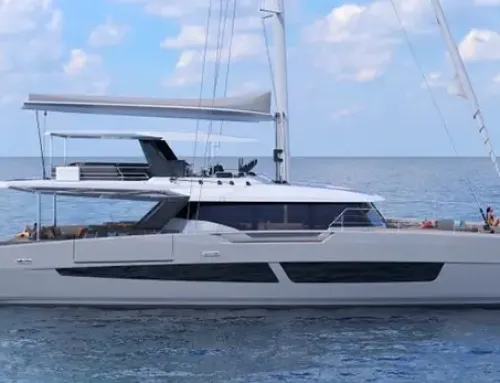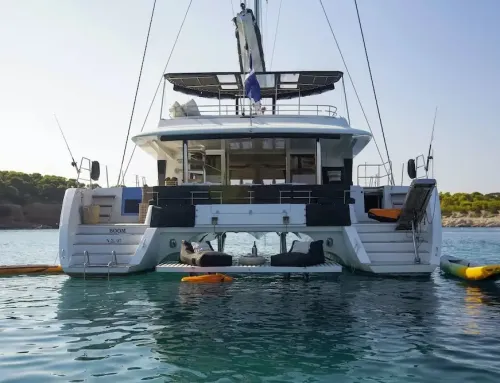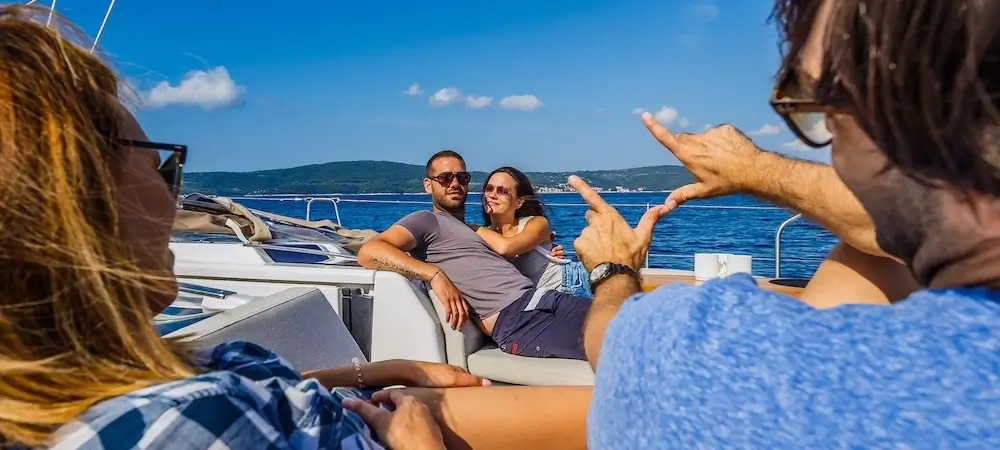
Mastering the Art of Boat Cuisine
Taking a gastronomic voyage at sea makes eating a vital component of your sailing experience. Here’s how to navigate the wide waters and improve your cooking experience.
Organising Your Dinner: The Boat Cooker’s Manual
Effective Meal Planning
Plan your meals first according to how long your journey will take and how many people will be travelling with you. Choose recipes that are easy to prepare and that you can simply modify to fit the equipment aboard your yacht. Add some locally produced, fresh products to your dish; they can be found in coastal markets.
Putting Supplies in Order: Crucial Items
When considering what food to bring on a sailing trip, go for non-perishable food items as the foundation of your meals, accompanied by fresh produce to enhance flavour and nutrition. Consider grains, pasta, canned foods, and fruits and vegetables that keep well. A reminder that storage space is limited should help you plan.
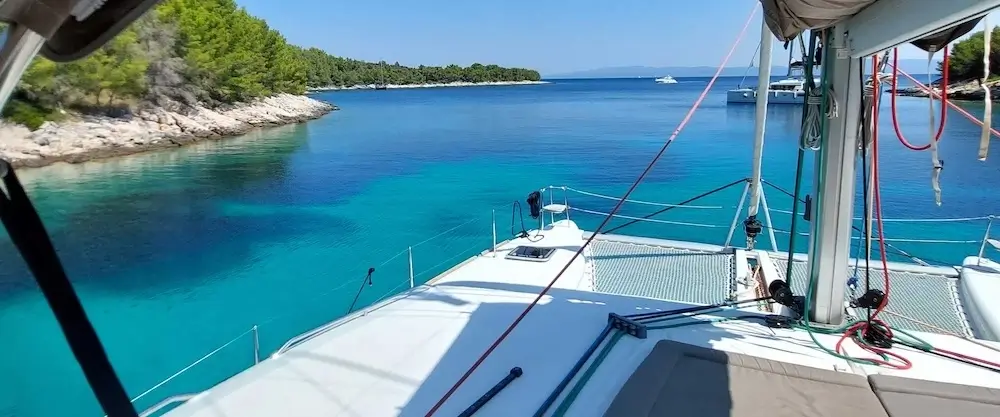
Tips For Cooking On A Boat Charter Sailing 2
Cooking Methods and Utensils for a Boat
Modifying Cooking Techniques
Though small in size, a yacht’s galley kitchen is properly prepared to handle a wide range of cooking techniques. The secret is to modify your cooking methods to fit the equipment at hand, whether you’re simmering on the hob or baking in the oven. One-pot meals that are quick and easy to prepare also cut down on cleanup time.
Crucial Equipment for the Galley
Before you set sail, familiarise yourself with the equipment and layout of the galley. Pots and pans, a cutting board, knives, and utensils are among the necessary kitchenware. If they are accessible, multipurpose appliances might be a terrific way to save time and space.
Efficiency and Safety in the Galley
Safety Comes First
Safety comes first while cooking on a moving vessel because there are special challenges involved. When using a cooker, keep an eye on it at all times, fasten any loose objects to prevent mishaps, and make sure there is enough ventilation to keep odours and humidity at bay.
Efficiency in Energy Use
Pay attention to how much energy you use, particularly if you depend on the yacht’s power source. To save fuel and battery life, plan meals that can be prepared in parallel or that just take a short amount of active cooking time.
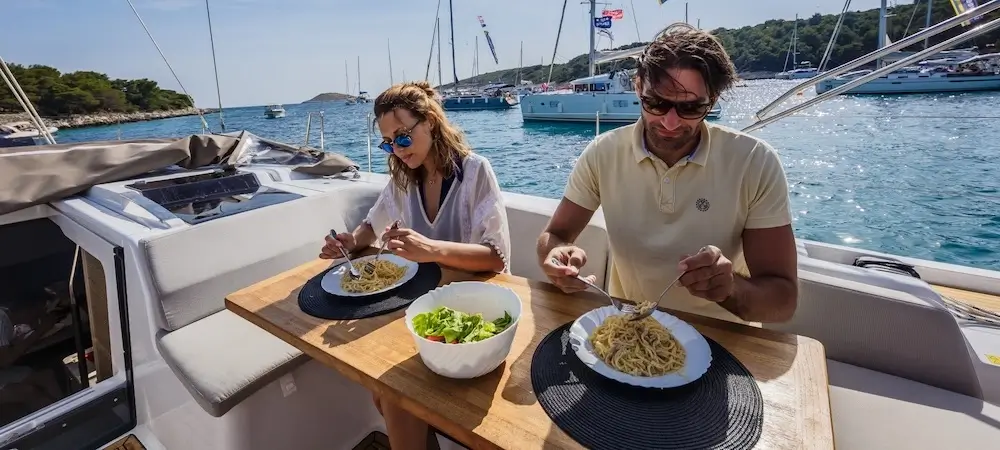
Tips For Cooking On A Boat Charter Sailing 3
Organising Meals for Adventures at Sea
Make Your Menu Simpler
Meal planning should be kept simple. Choose recipes that call for the fewest possible ingredients and preparation time. The best dishes are those that can be prepared in a single pot or skillet because they require less cleanup and energy. Consider filling pastas, one-pan roasted veggies, or straightforward seafood recipes that make the best of the local catch.
Add Regional Flavours
Sail in destinations like Croatia and sample the local food as part of the journey. Use regional items in your cooking to improve your gastronomic experience. To restock on fresh produce, seafood, and local specialties, visit your local markets. Embark on A culinary journey through Croatia aboard your catamaran charter to get ideas for fusing Croatian flavours into your recipes.
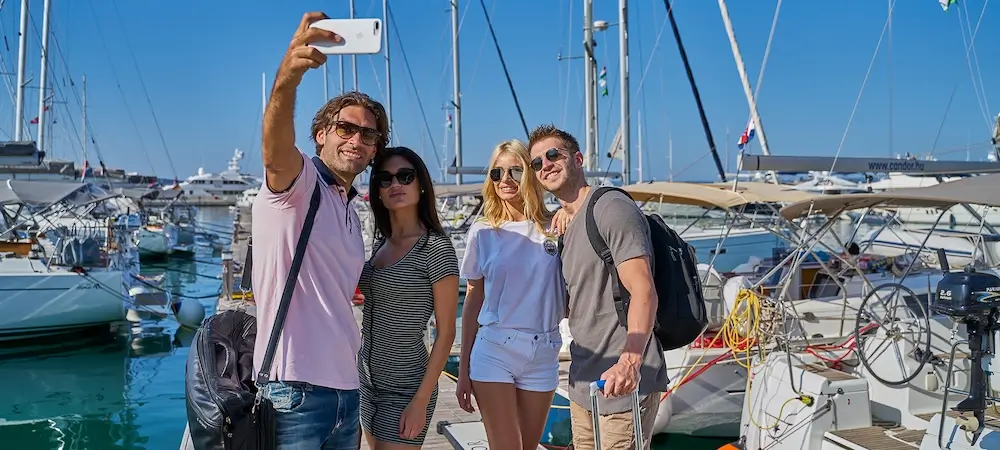
Tips For Cooking On A Boat Charter Sailing 8
Essentials of Provisioning
Purchasing Wisely
It’s important to stock your yacht with all the supplies before you go. For the majority of your supplies, concentrate on non-perishables like rice, pasta, canned products, and durable veggies like potatoes and onions. To improve your meals, don’t forget the necessities: oil, salt, spices, and your preferred condiments.
The Best is Fresh
Add fresh local food to your groceries whenever you can. When you dock, you may purchase fresh meats, fruits, and vegetables in nearby ports, helping the local economy while also guaranteeing that your meals have the freshest ingredients possible.
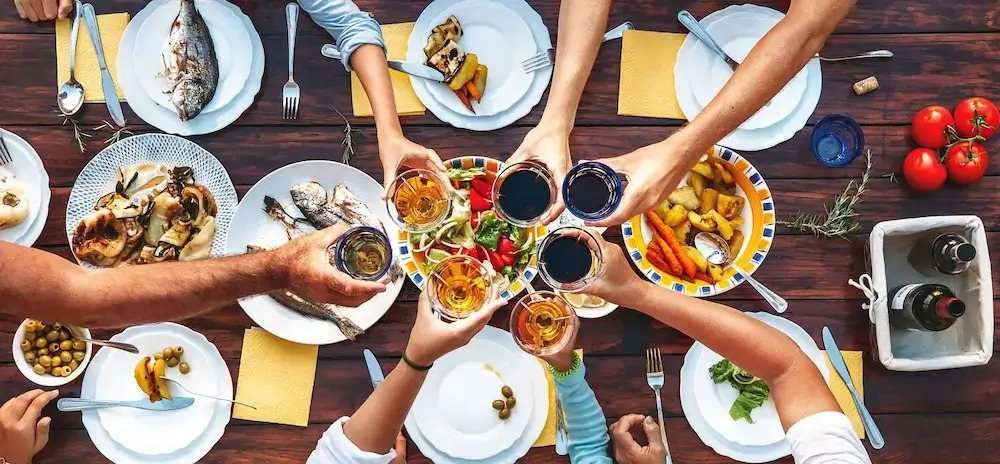
Tips For Cooking On A Boat Charter Sailing 4
Cooking on a Boat: Useful Advice
Making Use of Boat Kitchen Appliances
Making the most of the limited space and appliances is necessary while cooking aboard a boat. Before you start preparing meals, familiarise yourself with the equipment and layout of the galley. An oven and stove are common appliances used in boat kitchens, and occasionally a grill. Arrange your meals to take use of these gadgets, and remember to always use less gas and electricity.
Prioritising safety
In the galley, safety comes first. Pot handles should always be turned inside out to avoid mishaps when the boat is moving. To keep pots and pans safe on the stove, use clamps or pot holders. When cooking, never leave the burner alone, and keep a fire extinguisher handy in the kitchen.
Tipping Customs for Exclusive Charters
Guidelines for Gratuities
Tipping is a traditional method of expressing gratitude for the crew’s efforts and commitment throughout your charter. Although tipping levels are subject to change, how much do you tip skippers in Croatia , is usually between 10 and 20 percent. This also applies to the crew.
Do Guests on Charter Always Leave Tips?
Although it is expected and often appreciated, tipping is ultimately up to the individual guests. It’s a private method to let someone know how happy you are with the service you got. When choosing a gratuity, always take the quality of service and your entire experience into account.
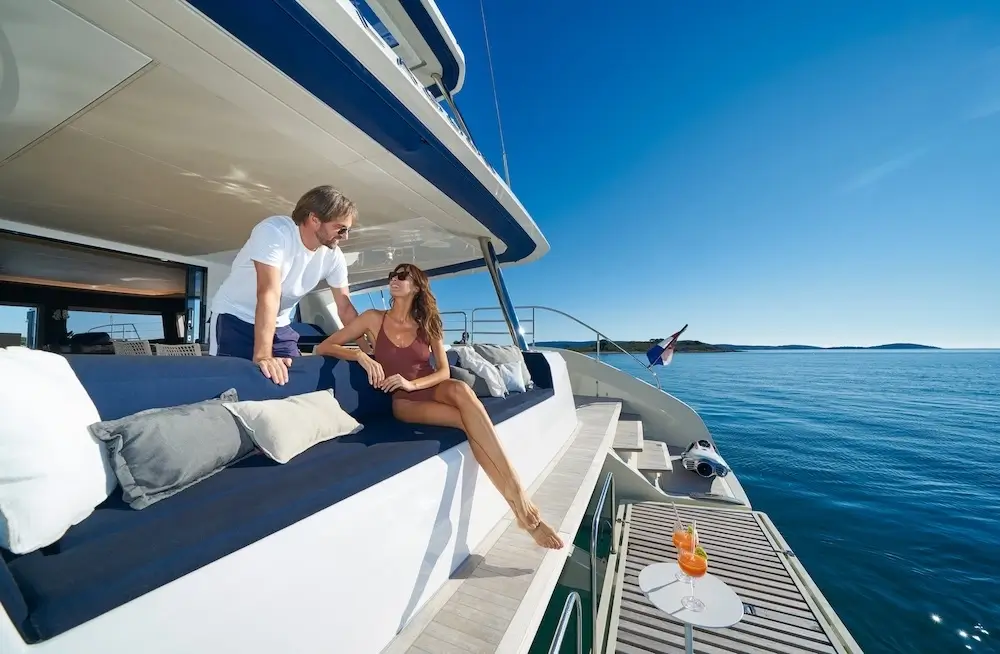
Tips For Cooking On A Boat Charter Sailing 5
Enhancing Your Seafood Dining Experience
Outdoor Dining
Eating outside while taking in the breath-blowing scenery is one of the main pleasures of private yacht chartering or sailing on luxury catamarans in Croatia. Schedule a special dinner for at least one evening that falls under the stars or at dusk. To enhance the sense of place and occasion, prepare dishes that showcase the flavours of the region using fresh, locally sourced foods that may be found in coastal markets.
Dinners with a theme
Plan themed dinner nights to inject some freshness and good times into your culinary adventure. Themed meals may change your dining experience and make every meal an occasion to look forward to, whether it’s a seafood spectacular, a Mediterranean night, or a traditional Croatian feast.
The Pleasure of Shared Meals
Building Relationships
Dining together on a yacht is a great way to strengthen relationships. Cooking and eating together creates a platform for sharing experiences, laughs, and tales while also fostering a sense of community among visitors and crew. Invite everyone to help, whether it’s preparing the food, setting the table, or just bringing a dish or an idea.
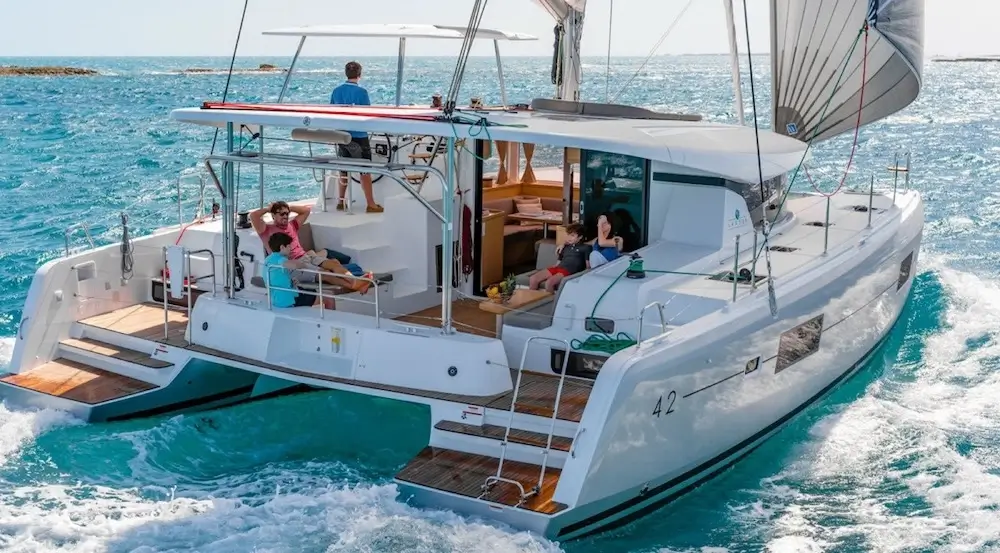
Tips For Cooking On A Boat Charter Sailing 6
Honouring Regional Foods
Including the local cuisine at your sailing destinations makes for a more enjoyable trip. A culinary journey through Croatia aboard your catamaran charter can be a deeply engaging way to engage with the local way of life. Organise dinners that highlight regional food, and if you want to learn more about the area’s culinary history, consider bringing a local chef to help with dinner prep or a cooking class.
Dedication to Eco-Friendly Cooking Methods
Reducing Waste
Cooking and eating on a boat responsibly means reducing waste and emphasising sustainability. Arrange your meals to make the most of perishable items, and store leftovers well for later meals. Adopt a zero-waste mindset by shunning single-use plastics and packaging in favour of reusable containers and environmentally friendly goods.
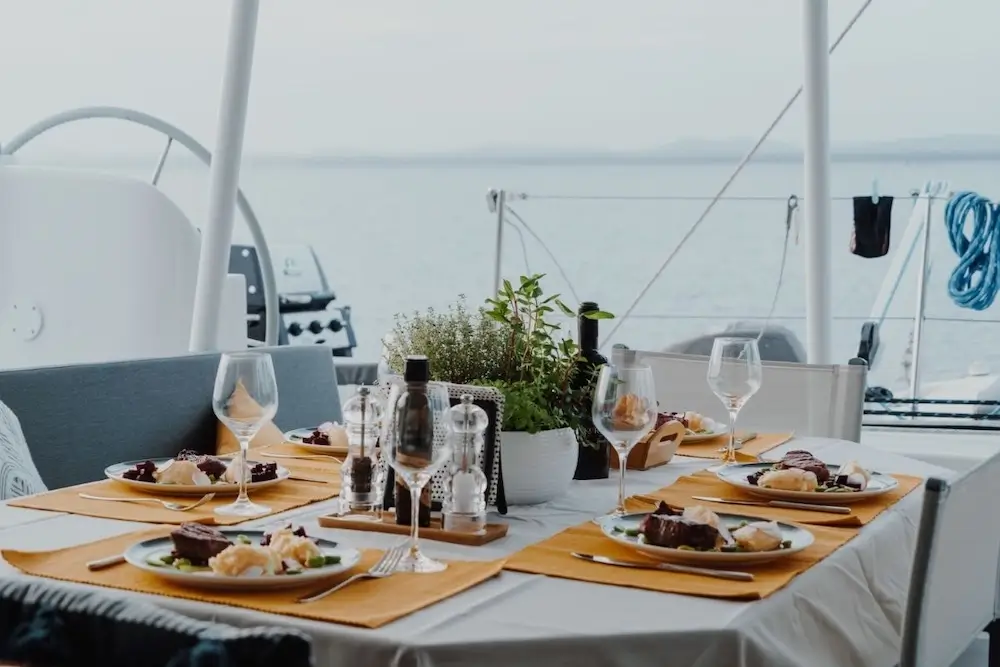
Tips For Cooking On A Boat Charter Sailing 7
Encouragement of Regional and Ecological Sources
Buy ingredients from nearby markets and vendors wherever you can, giving priority to organic and sustainably sourced produce. This lessens the carbon impact associated with moving food while also boosting the local economy. Having a meal with the locals can also result in more genuine and meaningful travel experiences.

